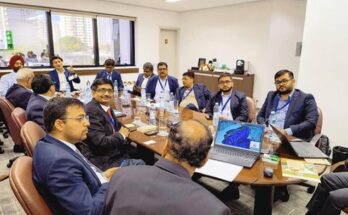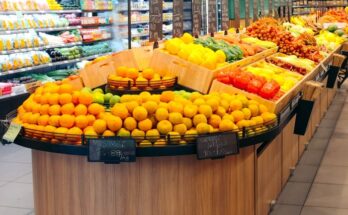Tashkent/Rome/Budapest – On the final day of the 32nd Session of the Regional Conference for Europe, members of the Food and Agriculture Organization of the United Nations (FAO) from Europe and Central Asia reinforced their commitment to transform agri-food systems through innovation, digital technologies and sustainable practices, as well as create inclusive growth in rural areas, taking into account the impacts of the COVID-19 pandemic on food and agriculture.
During the three days of the virtual conference hosted by Uzbekistan, 31 ministers and vice-ministers from 51 countries actively participated in the discussions, in addition to other 270 delegates and 50 observers from governments, international organisations, other UN agencies and various partners. More than 1500 people were daily watching the webcast of the conference.
“This first virtual FAO Regional Conference in this region has been a great success also due to the engagement with non-state actors, partner organisations, civil society, and – for the first time – the private sector,” said FAO Director-General QU Dongyu, who noted that the new virtual modality has also helped to “move away from formalities and focus on the substance.”
During the discussions, members committed to a positive outcome at the United Nations Food Systems Summit 2021, while stressing that the world is not on track to achieve the Sustainable Development Goals (SDGs).
The conference recognised the need to pay special attention to the empowerment of rural youth and women, and the strengthening of rural services and infrastructure to ensure inclusive sustainable development, the empowerment of smallholder farmers, and green growth.
Transforming food systems and rural areas
In their interventions, members emphasised that agri-food systems should be resilient and sustainable, and function under any circumstances, even in the midst of a pandemic. They acknowledged the importance of adopting a food systems approach for healthy diets, taking into account the three dimensions of sustainability (environmental, economic and social), as a key commitment in achieving the SDGs.
The importance of innovation, research and well-functioning agricultural extension services have been identified as a prerequisite to ensure farmers and small enterprises can access knowledge and technology, as well as to take advantage of new opportunities that digital technologies offer to improve not only the productivity and sustainability of food systems, but also their transparency for consumers.
Members called on FAO to support, through its regional initiatives, the development and implementation of the transformative agenda on sustainable agri-food systems and healthy diets, which includes addressing specific impacts of COVID-19. FAO will support countries by providing relevant analysis and data on the current status of diets and food systems, as well as to build and share knowledge.
Smallholders and family farmers remain key pillars of the region’s rural areas and food production throughout the pandemic. To this end, the FAO COVID-19 Response and Recovery Programme offers countries a framework to provide tailor-made solutions, and mobilise investments for small family farms’ and youth entrepreneurship, as well as public infrastructure, digital technologies, climate change mitigation and adaptation, as well as social protection.
Members welcomed and supported FAO’s new approach to agricultural development laid out in the Hand-in-Hand Initiative. They recognised the role it can play in strengthening the countries’ ownership to accelerate progress to end poverty and hunger, as well as promote rural development and economic growth. In this regard, they also emphasised the benefit for innovation of improved data use for informed decision-making, and highlighted the importance of data protection and privacy.
For the period of 2020-2021, members requested FAO to deeply integrate the One Health approach, including tackling antimicrobial resistance, zoonotic and other transboundary pests and diseases, promote equality and digital inclusion, social protection and school feeding and nutrition programmes, as well as ensuring the link between sustainable production and healthy and safe nutrition in its work.
45 years of promoting food security and nutrition
The conference hosted an open discussion on the ways the Committee on World Food Security (CFS) helps countries of the region advance food security and nutrition. A new set of voluntary guidelines on food systems and nutrition was presented at the special event. These guidelines have the potential to become a key reference document to address food insecurity and malnutrition in all its forms from a food systems perspective.
“FAO is proud to host the CFS Secretariat in Rome,” the FAO Director-General said. “Considering its 45 years of experience, the CFS should be more incorporated into FAO’s work on food security and nutrition, as an important inclusive international and intergovernmental platform.”
With food loss and waste increasing due to movement and transport restrictions caused by COVID-19, Qu noted the potential role of the Committee in tackling the growing problem of food loss and waste, at a time when global hunger is on the rise.
Thanawat Tiensin, CFS Chairperson and Permanent Representative of Thailand to the Rome-based Agencies, briefed the Regional Conference participants on the main activities the Committee is planning to carry out in the coming years. He expressed concern about the negative impact of COVID-19 on agrifood supply chains and food security that are further impairing the achievement of the global goals.
“We must act to address the pressing challenges of today,” said Tiensin in his message. “CFS policy tools exist to help countries progress towards the achievement of SDG 2 on zero hunger, and the 2030 Agenda. Countries and stakeholders need to participate actively and constructively in the Committee’s dialogue, and gain full ownership of the outcome,” he added.
During the panel discussion, North Macedonia’s Minister of Justice Bojan Marichik noted that the Western Balkan countries are taking steps to advance gender equality in land ownership and control. He added that the adoption of the 2030 Agenda, and other international instruments, including the FAO Legal Assessment Tool and the CFS Voluntary Guidelines on Tenure (VGGT) are key in achieving this objective.
The representative of the CFS Civil Society Mechanism, Isa Alvarez, emphasised the importance for the guidelines to be based on science and evidence, benefitting the people, who feed the world.
Katarina Eriksson from the CFS Private Sector Mechanism expressed her appreciation for the participatory process to develop the food systems and nutrition guidelines, calling them a “good example of how the CFS works.”
At the closing session of the Regional Conference, the FAO Director-General and the delegates thanked the Republic of Uzbekistan for hosting the virtual event. The Director-General gave special thanks to Jamshid Khodjaev, Agriculture Minister of Uzbekistan, who chaired the Conference.




